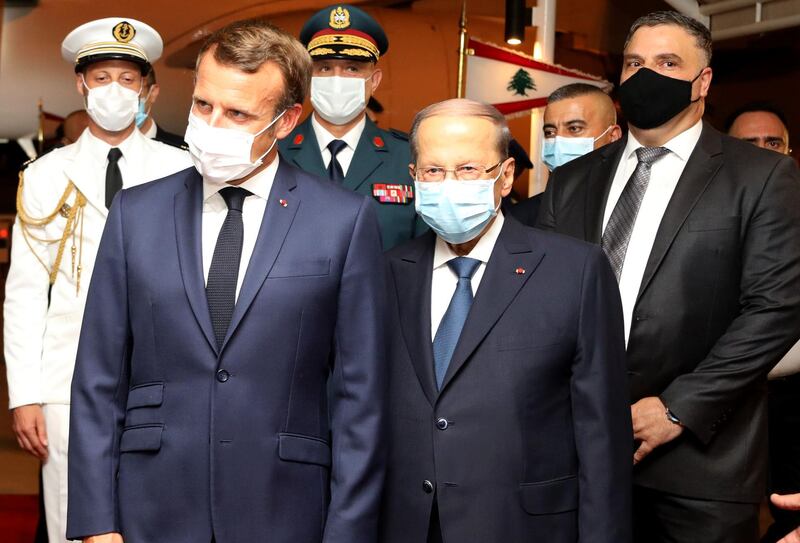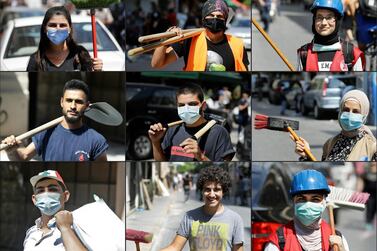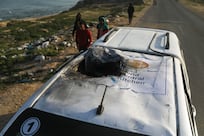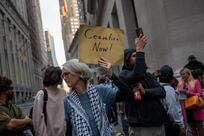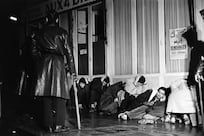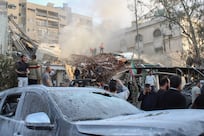The Lebanese have found themselves looking to France, their former colonial ruler, for solutions in the weeks after a devastating blast shattered much of their capital and claimed nearly 200 lives.
On Monday, on the eve of Lebanon’s centennial, French President Emmanuel Macron arrived in Beirut for a much-anticipated visit.
This visit is Mr Macron’s second in less than a month; his first was in the immediate aftermath of the August 4 blasts, caused by an unsecured stockpile of ammonium nitrate. At the time, he promised to help Lebanon find workable answers to a host of problems including the investigation into the blast, a disastrous financial crisis and a dysfunctional political system. As part of that effort, he gave Lebanese leaders until September 1 to form a “new political pact” to save the nation.
Mr Macron’s push for change was welcomed by an overwhelming majority of Lebanese. Last month, a petition even circulated demanding a new French mandate for Lebanon, garnering 60,000 signatures. Far from suggesting a colonial renaissance, however, these popular overtures to Paris rather indicate the extent to which Lebanese politicians have failed.
No political leader has accepted responsibility or even apologised for Beirut’s man-made tragedy. Nearly a month on from the blast, the cause of the fire that started it and – importantly – who exactly is responsible for the stockpiling of flammable materials for years at the port remain unknown. In the hours before Mr Macron’s arrival, political leaders scrambled to find a suitable replacement for former prime minister Hassan Diab, who resigned days after the explsion. Later that day, they settled on Mustapha Adib, a career diplomat who was soon confirmed as Mr Diab’s successor.
The fact that political leaders were forced to expedite the process is a positive development. It gives some sense that change is in the air. In Lebanon, nominating a new prime minister and forming a government can take months, or even years.
As the Lebanese have often witnessed, however, it can be the case that the more things change, the more they stay the same.
While Mr Adib has promised change and the swift formation of a new Cabinet of “experts”, his close ties to the establishment have left many Lebanese sceptical. Mr Adib was an adviser to former prime minister and billionaire businessman Najib Mikati. Protesters see his nomination as the continuation of business as usual, and have greeted Mr Macron with chants of “No to Adib”, urging the French President not to support the new Cabinet. If France is to continue to play a positive role in Lebanon, it must refrain from giving automatic legitimacy to what may become yet another failed government.
International pressure exerted by allies of Lebanon, such as the US and France, must continue so that the country can come to distance itself from Hezbollah, the Iran-backed militia whose grip on Beirut has had ruinous effects on the country. International pressure is also crucial to push the new government to negotiate a deal with the International Monetary Fund. Hezbollah does not favour such an agreement, although it is the only way to save Lebanon from economic collapse and ensure the enacting of much-needed reform.
Local pressure from civil society and protesters advocating better governance from within has also been a pivotal driver of change. Peaceful protesters must be protected from violence and arbitrary detention by security forces. They are Lebanon’s future, and if the international community continues to support them, there is still hope that Lebanon can view the next 100 years with a sense of optimism as the start of a new era.
